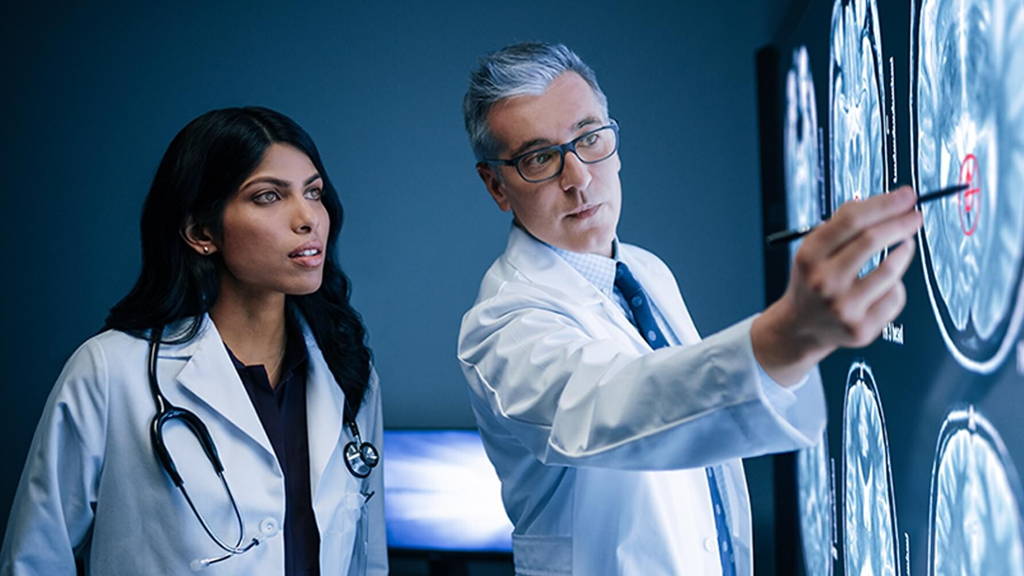It’s all in the name: Cognitive Computing is all about imitating human cognitive abilities in computerized models. Cognitive computerized systems depend on several aspects of Artificial Intelligence, like machine learning, reasoning, language processing, machine-human interaction and even vision.
Rising intelligence
Big Data and the cloud are propelling Cognitive Computing forward, by creating more storage space and creating an evolution in analytics. These developments make it possible to store more data, and thus, more knowledge. The machines use this knowledge to refine their search for patterns and datasets. Eventually, the machines can use this knowledge to anticipate new problems and model possible solutions. You might say that these machines keep getting more intelligent. This might provoke some negative associations, but that doesn’t stop Microsoft and IBM from using the development in their new projects.
Cognitive systems in healthcare
Healthcare especially has a lot to gain from Cognitive Computing. Algorithms, advanced text analytics and data mining — in which a machine searches through all its collected data to find relevant information — all help physicians to diagnose their patients faster. It also supports physicians in their decision making process, which is beneficiary to all patients. The cognitive systems optimize patient selection for clinical trials as well.
Watson researches cancer
IBM shows off the multiple possibilities Cognitive Computing offers by not only using it in their recent prototype MERA, but also in their cancer research. IBM’s Watson for Oncology support oncologists in their cancer treatment research. Watson analyses data from several sources, including over 290 medical journals, over 200 textbooks, and 12 million pages of text. The American Cancer Society uses the intelligent machine to create personalized treatment for patients.
Predicting medical emergencies
Microsoft’s Cortana Intelligence Suite, an artificial intelligence platform, branded as ImagineCare, is being used to predict medical emergencies. Dartmouth-Hitchcock, a medical center in New Hampshire, uses the system for het 6000 patients. The system collects data from sensors, devices and even phone calls between patients and nurses. Whenever the system detects something unusual, it sends an alert to a nurse. Here, machine and human work together to create an effective yet personal healthcare experience.

